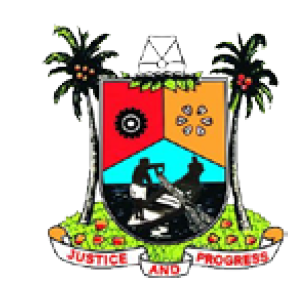LAGOS STATE ELECTRICITY POLICY
Public Consulation
Lagos State, the country’s commercial centre, hosts a considerable number of manufacturing and service industries. Lagos State alone accounts for about 30% of the national GDP and 50% of the non-oil GDP. This is powered by less than 1,000 Megawatts (MW) of electricity supply from the national grid delivered to the two electricity distribution companies (Discos) in the State.
Lagos is dependent almost entirely on a fleet of no less than 15,000 MW of back-up generator capacity, powered by expensive and heavily polluting distillates like fuel oil, petrol and diesel. No progressive and modern economy in the world has thrived in the face of such combination of electricity inadequacy and supply imbalance.
Shaping the Future of Power in Lagos: We’d Love to Hear from You
Lagos State has resolved to drive a new Policy and Strategic Framework that will significantly improve the viability of investments in the Lagos State Electricity Market. The State Government will take direct responsibility for developing, growing, and regulating a Lagos Electricity Market as prescribed in the 1999 Constitution (amended).
EXECUTIVE SUMMARY
Lagos, in addition to being the commercial centre, is the most populous state in Nigeria. It is home to one of the largest megacities in the world and is growing each minute. The State is very important to the survival of a non-oil dependent Nigeria. It is home to Nigeria and Sub-Saharan Africa’s most important financial centre outside Johannesburg, South Africa and is home to the two most important seaports and domestic and international airport hubs in the country. Lagos State would be the fifth largest economy in Africa if it were a country.
This makes Lagos a major centre for both domestic and international trade as well as labour mobility. Energy supply is currently the single biggest infrastructure and developmental challenge in the State. Lagos depends entirely on Nigeria’s national grid for its public electricity supply, as does the rest of the country. Through its two resident electricity distribution companies (Discos) – Eko and Ikeja – it receives just about 1000MW for an average of no more than 12 hours daily, i.e., 12,000 megawatt-hours (MWh), for a population exceeding 27 million spread over a compact land mass. The uneven supply across the State for no more than half a day, on average, makes off-grid generators, self-generated electricity critical to socio-economic activity despite being extremely costly and environmentally unfriendly. The Lagos State Electricity Board (LSEB) conducted research in 2014 that demonstrated that 15,000MW of the estimated 45,000MW of off-grid generators in Nigeria is located within Lagos State alone.
Lagos has continued to witness a continuous flow of new residential, commercial, and industrial developments and investments.
As it tries to manage its evolution into a 21st century economy, with the attendant need to meet urban planning standards and satisfy the demand for various social amenities and economic opportunities, the State needs to establish the enabling environment for an electricity market that supports the huge demand that this growth generates. This Lagos market must be separate from the national electricity grid, but also be connected with and complementary to the latter. Lagos cannot rely on the national grid alone for its long term, sustainable socio-economic growth and significant growth in the standard of living of its citizens.
A major challenge the State must contend with is the highly skewed ratio between public electricity supply and highly expensive, highly polluting, and economically inefficient off-grid generators that actually power Lagos State. Several requirements are critical to implementing a holistic solution that delivers clean, adequate, and reliable electricity supply within the geographical territory of the State and to all its demographic/customer classes.
These include:
1) an enabling constitutional andlegal framework.
2) collaborative Federal and State Government support for market growth/customer satisfaction.
3) an autonomous, credible regulatory body.
4) an integrated resource plan.
5) competitive and transparent procurement of generation resources.
6) a bankable commercial framework.
7) well-funded, well-managed generation, transmission, and distribution players.
8) an Independent System Operator.
This Policy articulates the vision of LASG on the necessary constitutional, legal, engineering, and commercial foundations for creating a viable sub-national electricity sector that caters fully to the needs of its citizens, while enabling significant socio-economic growth and development both for Lagos State and Nigeria at large.
We Eagerly Welcome Your Comments!
Let’s Work Together
Interested in hearing more about Lagos State’s Plans? Share your email below, and we’ll keep you posted.
(We will only use this information for relevant updates and will not share it with third parties.)







